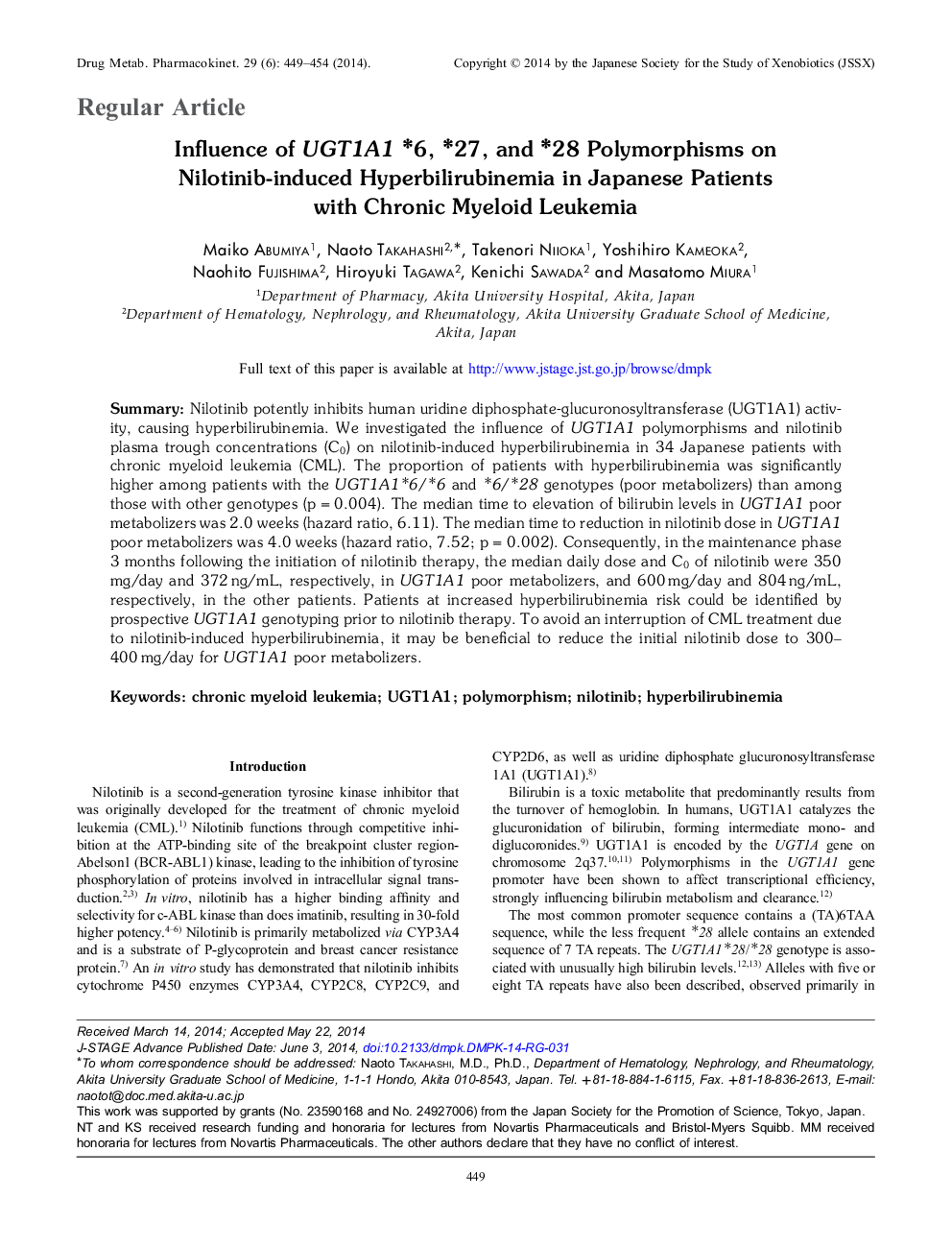| Article ID | Journal | Published Year | Pages | File Type |
|---|---|---|---|---|
| 2478993 | Drug Metabolism and Pharmacokinetics | 2014 | 6 Pages |
Summary:Nilotinib potently inhibits human uridine diphosphate-glucuronosyltransferase (UGT1A1) activity, causing hyperbilirubinemia. We investigated the influence of UGT1A1 polymorphisms and nilotinib plasma trough concentrations (C0) on nilotinib-induced hyperbilirubinemia in 34 Japanese patients with chronic myeloid leukemia (CML). The proportion of patients with hyperbilirubinemia was significantly higher among patients with the UGT1A1 *6/*6 and *6/*28 genotypes (poor metabolizers) than among those with other genotypes (p = 0.004). The median time to elevation of bilirubin levels in UGT1A1 poor metabolizers was 2.0 weeks (hazard ratio, 6.11). The median time to reduction in nilotinib dose in UGT1A1 poor metabolizers was 4.0 weeks (hazard ratio, 7.52; p = 0.002). Consequently, in the maintenance phase 3 months following the initiation of nilotinib therapy, the median daily dose and C0 of nilotinib were 350 mg/day and 372ng/mL, respectively, in UGT1A1 poor metabolizers, and 600mg/day and 804ng/mL, respectively, in the other patients. Patients at increased hyperbilirubinemia risk could be identified by prospective UGT1A1 genotyping prior to nilotinib therapy. To avoid an interruption of CML treatment due to nilotinib-induced hyperbilirubinemia, it may be beneficial to reduce the initial nilotinib dose to 300400 mg/day for UGT1A1 poor metabolizers.
